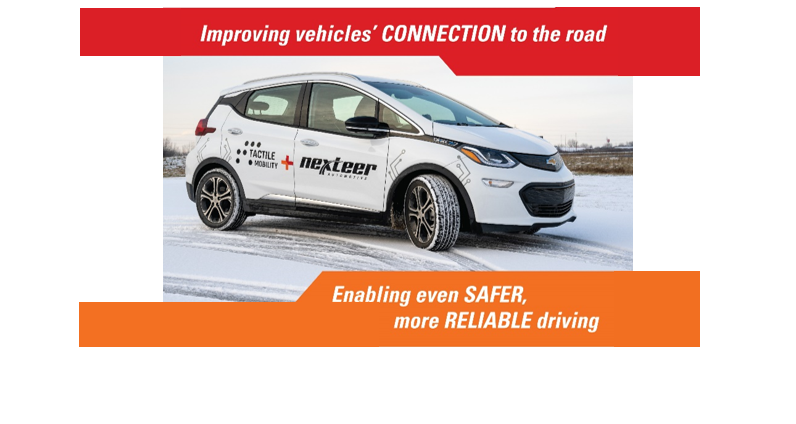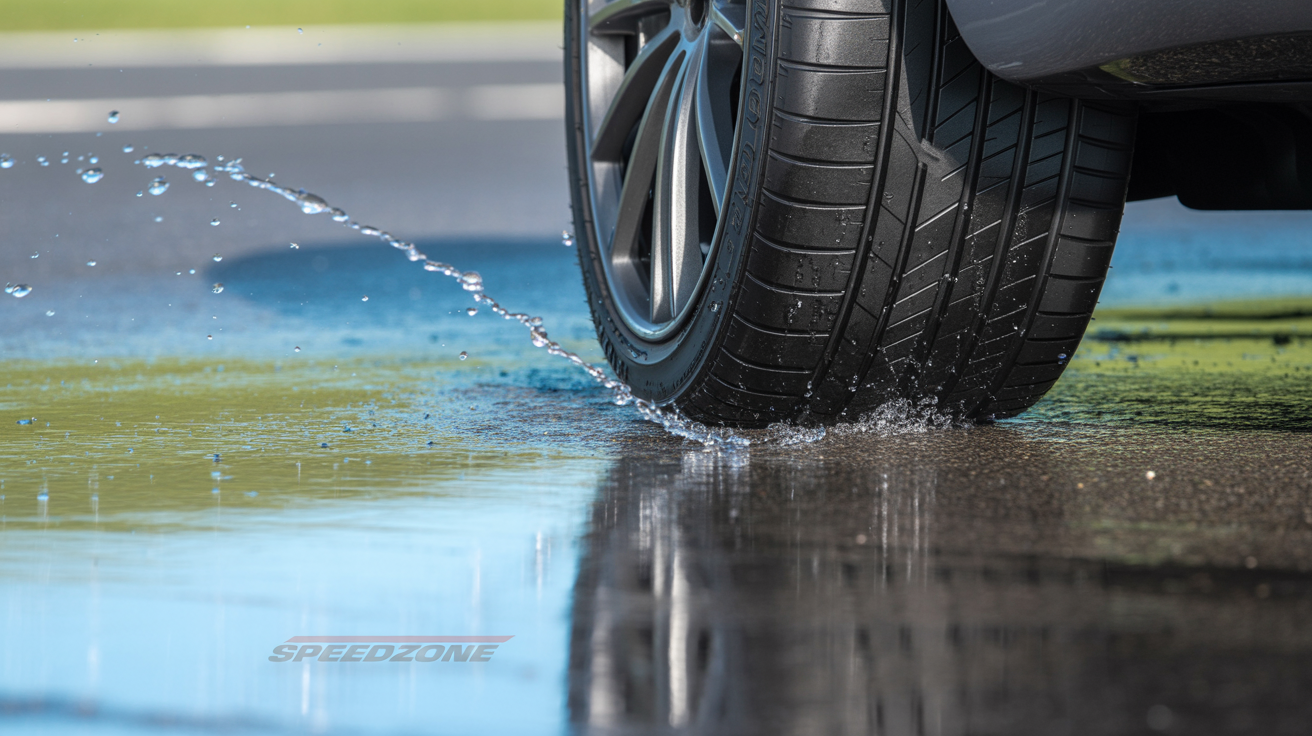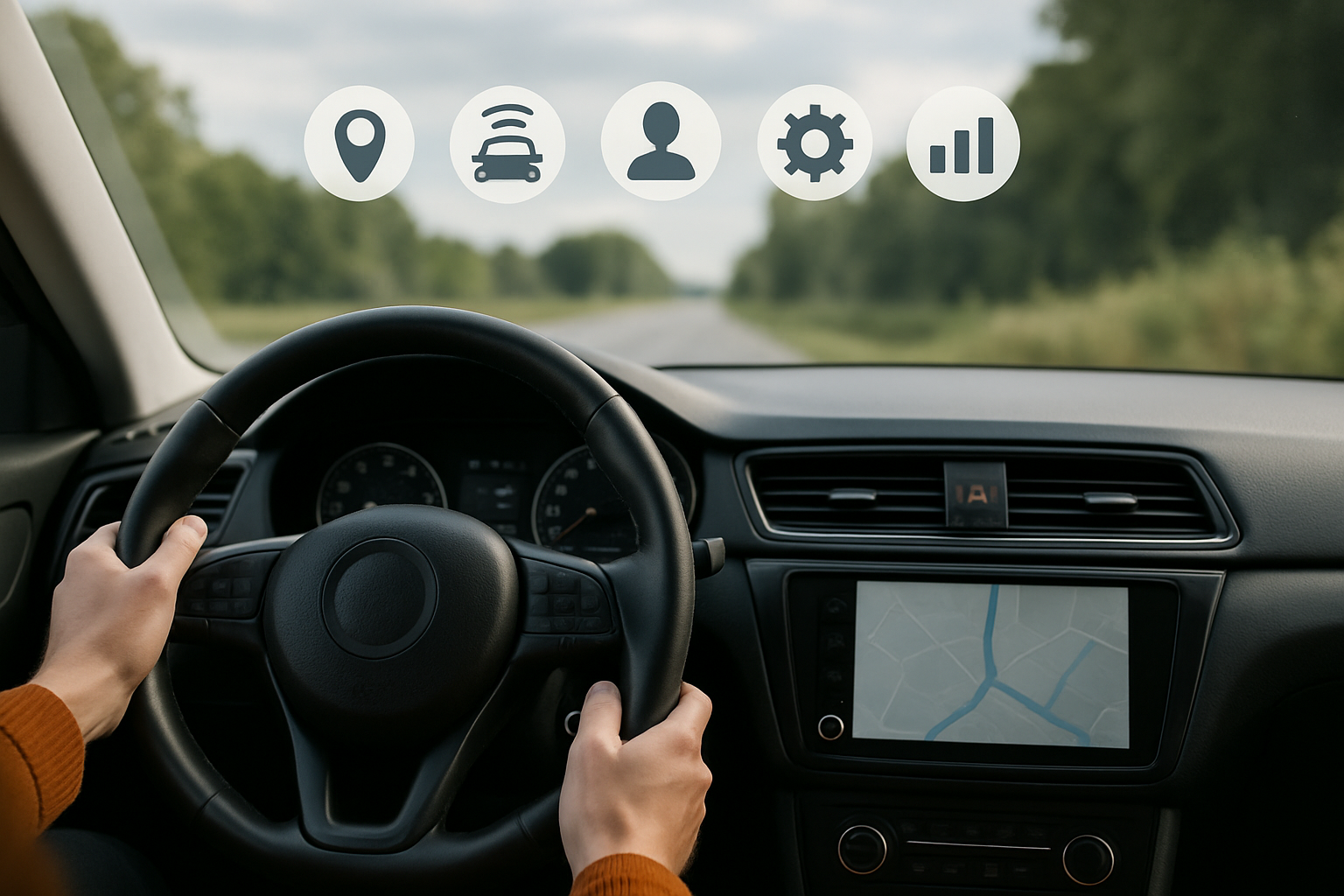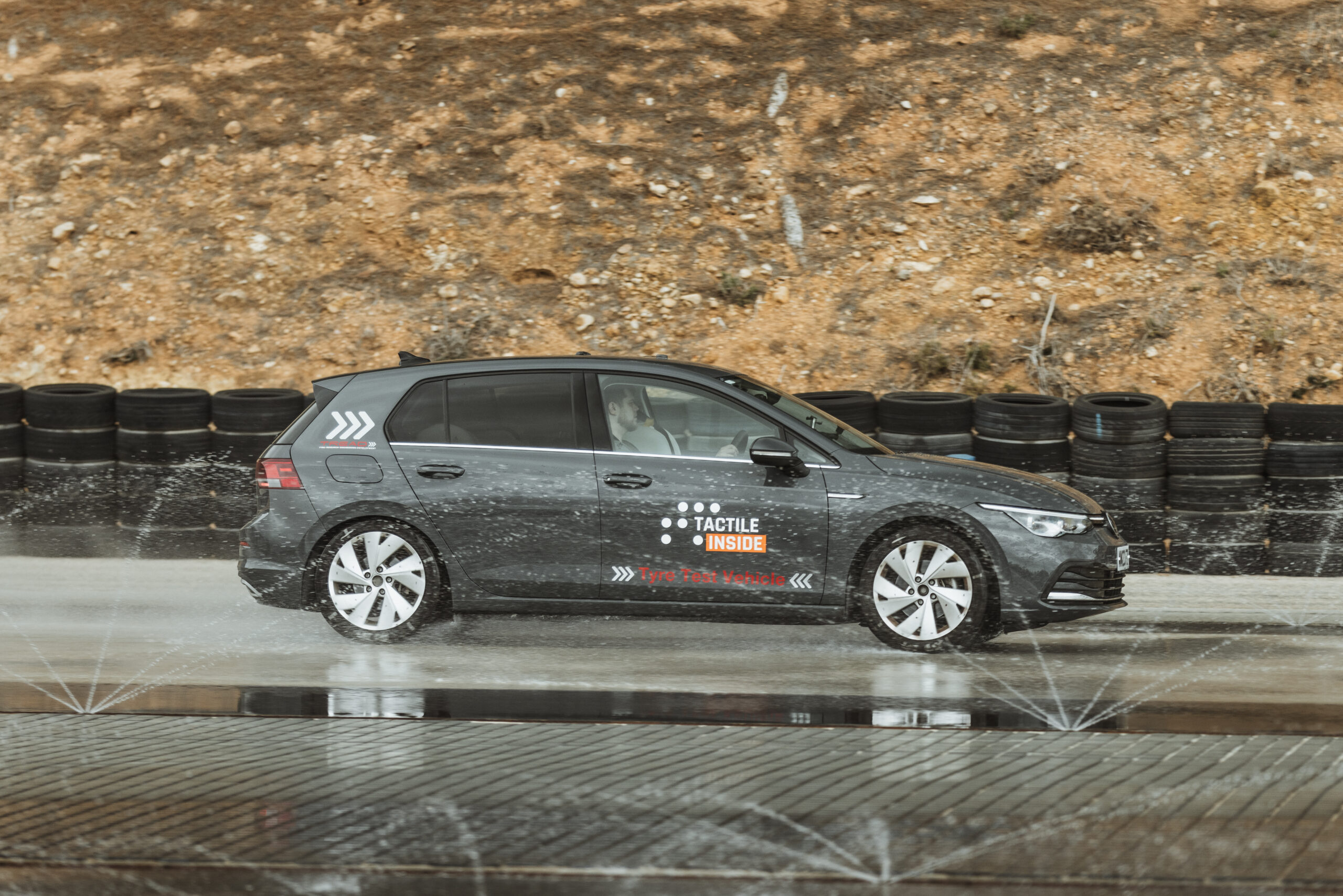Without having to think about it, we adapt the nature of braking and acceleration to the grip situation. However, for an autonomous vehicle or a vehicle that drives in cruise mode and is expected to recognize even things that it cannot learn from its camera and radar – such as identifying cars and pedestrians on the road – what will it do?
Israeli Tactile Mobility uses the existing vehicle sensors, the braking system, the steering wheel, and the air pressure sensor in the tires to identify the grip coefficient and adjust the braking force, acceleration, and steering angle to it. The company is also developing the ability to transfer information between nearby cars so that a driver and his car will receive a warning about a smooth road a few hundred meters before they reach it.
The company will reveal this ability tomorrow at the Ecomotion 2023 conference for smart transportation in Tel Aviv. “We detect with a high level of certainty and in real time the degree of friction between the vehicle and the road. We detect black ice, for example, which is difficult for even human drivers to see. Based on our diagnosis, the vehicle knows not to brake too hard, not to accelerate sharply, and not to make sharp steering turns,” explains Shahar Bin-Nun, CEO of Tactile Mobility.
According to him, ‘This is also meaningful in vehicles with adaptive cruise control, which typically falls under level 2 and 3 out of the 5 levels of autonomous driving. Even more so, it becomes crucial in a vehicle at levels 4 and 5, which can already drive completely by itself. The usual sensors do not provide it with everything it needs to know About the environment. We are already in very advanced negotiation stages with several leading players in the automotive industry, to integrate our system into their cars. I estimate that it will be installed in a vehicle in serial production already in the next two years.”
The company founded in Haifa in 2012 by Boaz Mizrachi, Yossi Shiri, and Alex Ackerman, today employs 35 people and has since raised 47 million dollars. Porsche invested $6 million in it, along with Toyota importer and Geely Union Motors, Delek Motors importer of Mazda, Ford and also in a separate investment by Gil Agmon, its owner, and Modi Ben Shach’s Moo Holdings.
Bin-Nun: “Tactile Mobility uploads the grip data from the vehicle to the cloud, analyzes it, and cross-references it with the weather forecast. The processed data is then returned to the vehicles connected to their grip map, allowing them to receive warnings about icy conditions 300 meters before they encounter them.”
Tactile Mobility works with the automotive industry through the Tier 1 supplier Nexteer Automotive, from which they purchase, among other things, steering systems. “We do not require additional hardware from the manufacturers, only 100k of memory for the software and access to data from the various sensors. This greatly reduces the cost of installation in the vehicle, and speeds it up,” says Bin-Nun.
The 11th conference of the Ecomotion community takes place from today until Wednesday in Tel Aviv, with the participation of hundreds of guests abroad and people from the Israeli auto tech industry. Audi Gro Kempf, vice president of Hyundai and responsible for global strategy in the company, Hyunang Soo, George Kellerman, vice president of Toyota’s Woven project, and among the local executives Prof. Shi Schlo-Schwartz, chief scientist of Mobileye and Shi Agassi, chairman of Makalu Optics.
![]()
Originally posted in Hebrew on cars.walla



